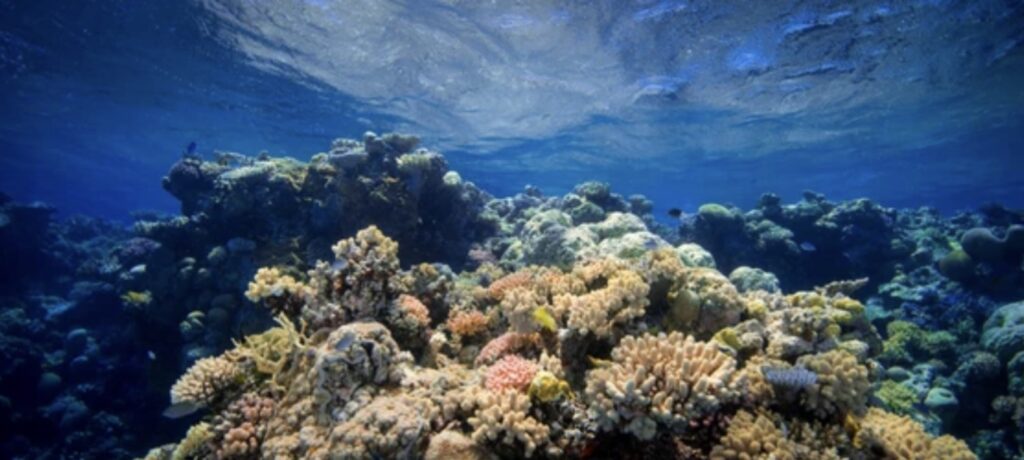Introduction
Coral reefs are among the most biodiverse ecosystems on our planet, renowned for their vibrant colours and intricate structures. These underwater wonders serve as a vital habitat for a staggering array of marine species and play a significant role in supporting coastal communities. Coral reefs are often referred to as the “rainforests of the sea” due to their high complexity, and in this article, we will explore the factors that contribute to their remarkable biodiversity and ecological importance.
The Coral Reef Ecosystem

Coral reefs are composed of calcium carbonate skeletons secreted by tiny coral polyps, which are closely related to sea anemones. These polyps live in colonies and create the hard, stony structures that form the basis of the reef. Over time, these reefs grow and develop into intricate formations that provide shelter and food for countless marine organisms.
High Complexity of Coral Reefs
- Structural Diversity: One of the key factors contributing to the high complexity of coral reefs is their structural diversity. Reefs consist of various formations, including fringing reefs, barrier reefs, and atolls. These diverse structures offer a wide range of microhabitats for marine life.
- Biodiversity Hotspots: Coral reefs are known as biodiversity hotspots, hosting an astonishing variety of species. A single reef
- may support thousands of different organisms, from the smallest plankton to the largest predators. This biodiversity extends to fish, invertebrates, and even microorganisms, all of which play unique roles in the ecosystem.
- Symbiotic Relationships: Coral reefs also owe their complexity to the intricate web of symbiotic relationships that exist within them. The most famous of these is the mutualistic partnership between corals and zooxanthellae, a type of photosynthetic algae. These algae live within the coral polyps’ tissues and provide them with essential nutrients through photosynthesis. In return, the corals offer protection and access to sunlight for the algae. This mutual dependency allows coral reefs to thrive in nutrient-poor tropical waters.
Factors Contributing to High Complexity

- Climate and Water Conditions: The presence of coral reefs is predominantly limited to warm, clear tropical waters. The availability of sunlight for photosynthesis is a crucial factor in supporting the growth of both coral and the symbiotic algae. Stable water temperatures and low nutrient levels also contribute to the health and complexity of coral reefs.
- Reproductive Strategies: Corals employ various reproductive strategies, including both sexual and asexual reproduction, to rapidly expand their colonies. Sexual reproduction involves the release of gametes into the water column, where fertilization occurs. This results in the formation of new coral polyps that settle on suitable substrates. Asexual reproduction, on the other hand, involves the division of existing polyps to create clones. These reproductive mechanisms contribute to the rapid growth and colonization of coral reefs.
- Predator-Prey Relationships: The complex predator-prey relationships within coral reefs drive species diversity. Predators like reef sharks, groupers, and moray eels help control herbivorous species such as parrotfish and sea urchins. This balance is essential for maintaining the health of the reef. Additionally, the presence of cryptic and nocturnal species adds to the overall complexity of the ecosystem.
Ecological Importance of Coral Reefs

- Biodiversity and Fisheries: Coral reefs provide habitat and breeding grounds for numerous species of fish and invertebrates. Many of these species are of economic importance, supporting vital fisheries that provide food and livelihoods for coastal communities.
- Coastal Protection: Coral reefs act as natural barriers, reducing the impact of waves and storm surges on coastlines. They help protect coastal communities from the destructive forces of tropical storms and hurricanes.
- Tourism and Recreation: The beauty and diversity of coral reefs make them popular destinations for tourism and recreation. This generates revenue for local economies and raises awareness about the importance of reef conservation.
- Scientific Research: Coral reefs offer invaluable insights into marine biology, ecology, and climate science. They serve as living laboratories for researchers studying topics such as species interactions, ocean acidification, and climate change impacts.
Challenges Facing Coral Reefs
Despite their incredible complexity and ecological importance, coral reefs are under significant threat. Human activities, such as overfishing, pollution, coastal development, and climate change, have led to widespread coral bleaching and reef degradation. Rising sea temperatures, ocean acidification, and coral diseases are also taking a toll on these fragile ecosystems.
Conclusion
Coral reefs are jewels of the ocean, teeming with life and unparalleled complexity. Their unique biodiversity and ecological functions make them irreplaceable assets to our planet. However, they face numerous challenges that demand urgent conservation efforts. Protecting and preserving these intricate ecosystems is not just a matter of environmental responsibility but also crucial for the well-being of coastal communities and the global marine ecosystem as a whole. It is our collective duty to ensure the survival of these remarkable, high-CPM (complexity per meter) habitats for future generations.
Discover more from ZOOLOGYTALKS
Subscribe to get the latest posts sent to your email.



Pingback: CORAL REEFS AND THEIR TYPES | ZOOLOGYTALKS | 14/11/2024